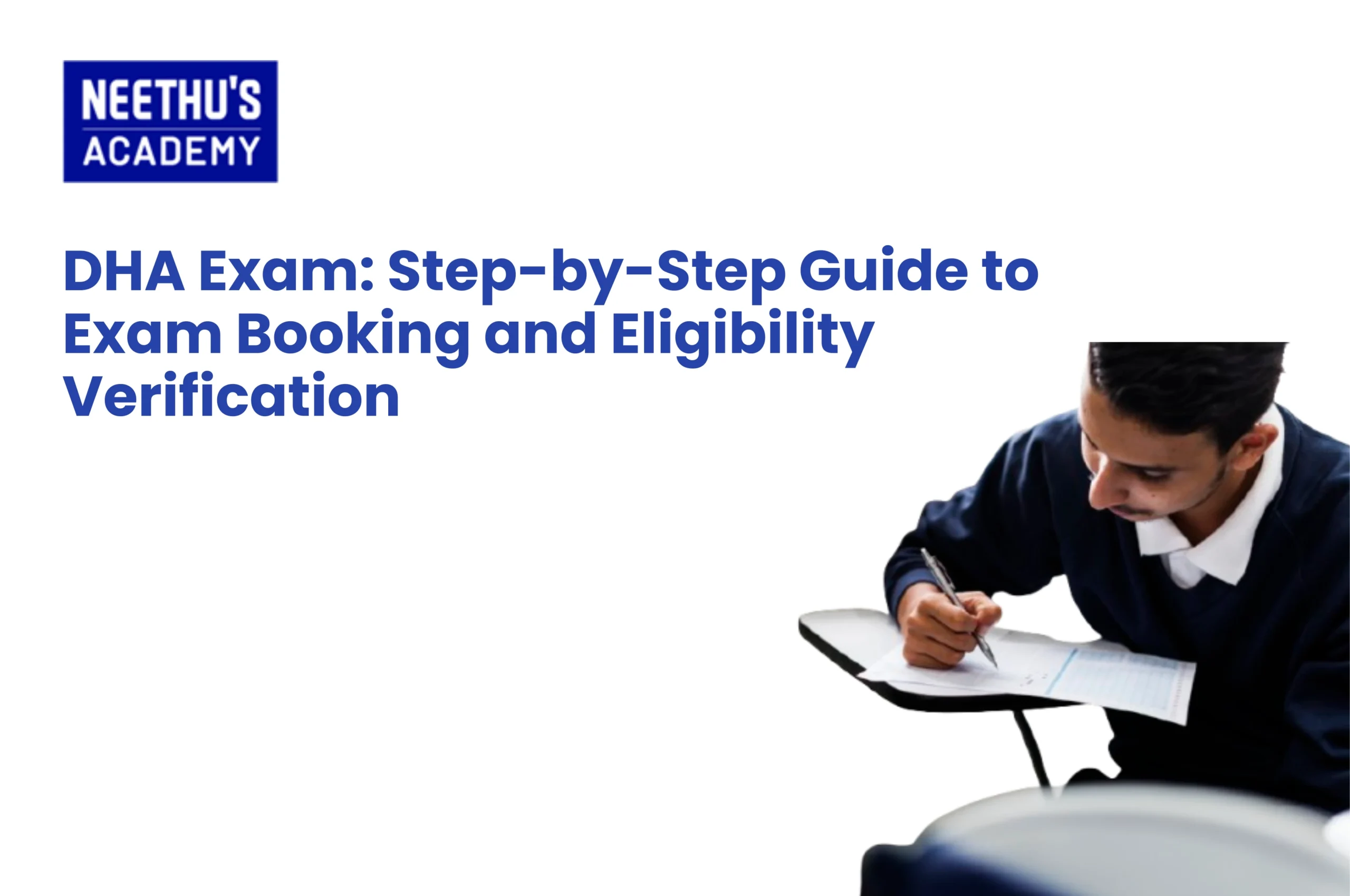Imagine you are running out of time and still have questions to complete! That would be the worst-case scenario while taking a…

OET Listening Made Easy: Proven Ways to Boost Your Score
Suppose you are a nurse in a bustling hospital environment. A doctor briefly explains a patient’s change in treatment and it is up to you to carry out the orders flawlessly. Misunderstanding even just a slight portion of the communication may have severe implications. Critical listening is essential in actual healthcare life, so the OET Listening sub-test assesses your skills in understanding spoken English in clinical situations.
Many candidates actually find the listening part of OET to be challenging in itself. It may sound so due to fast speech, unfamiliar accents, and medical jargon. But with the right strategies, you will find it easy like pie. In this blog, we’ll discuss some ways to improve OET Listening Skills, how to practice Effective listening, and a preparation strategy to ace the exam.
Understanding the OET Exam
The OET Listening sub-test analyses whether you can understand audio recordings, including patient consultations, workplace conversations, and healthcare presentations. It’s a test of whether a candidate will be able to clearly comprehend spoken English in real clinical settings.
The Listening sub-test has three components:
Part A: Consultation Extracts
In this part, you’ll listen to two different healthcare consultations and fill in notes based on what you hear. This part will test how well you can listen for specific information related to patient care.
Part B: Short Workplace Extracts
You will listen to six short recordings in which nurses communicate with doctors or receive administrative messages. You will answer questions presented as multiple-choice questions based on each of the extracts.
Part C: Presentation Recordings
This section has two long recordings, for instance, interviews or presentations on health matters. You will answer multiple-choice questions, focusing on what the speaker believes and which points he or she uses to justify those beliefs.
Purpose
The Listening sub-test aims to determine the capability of health practitioners to understand verbal information appropriately in different healthcare settings. Whether it is patient symptoms, follow-up instructions, or related discussions among health care providers, strong listening skills form a critical aspect that helps enhance one’s ability to communicate effectively in health settings.
Why listening Skills matter in the OET Exam
Listening skills in the OET reflect real-life situations that healthcare providers face daily. As a nurse, doctor, pharmacist, or any other type of medical provider, you will often need to interpret concerns from patients, understand very fast instructions, or follow very complex conversations in healthcare settings. Proper listening ensures that you give proper care, avoid miscommunication, and work effectively as part of a healthcare team.
Challenges
The OET Listening test is not about knowing English, but rather about knowing medical English in different accents and under time pressure. Common difficulties involve:
- Rapid conversation involving technical vocabulary.
- Accent of different nationalities, especially British, Australian, and American.
- There is an increased demand for quick identification of key information and realization of key details in dense information.
These are achieved by employing specific strategies, which is discussed below.
Effective Strategies to Improve OET Listening Skills
Practice Active Listening
Active listening means engaging actively with the audio, not just to hear the words said but to understand their meaning as well. Healthcare presents active listening as an important role that ensures all important details about medication doses, symptoms of a patient, and instructions related to treatment are captured—the kind of details that easily slide past otherwise in case of inefficient focus.
Try active listening by mentally summing up the conversation as you listen. This will reinforce the information even more in your brain and help with recall. Don’t try to memorize everything all at once; target key points of high value, specifically in Part A of the OET Listening, where you are expected to be attentive to distinct patient information. Concentration also is heightened when there is background noise in practice sessions, simulating real life more so than an ideal environment free from noise. It not only conditions your brain to focus attention on essential points of information but also improves general listening abilities under stressed or noisy conditions.
Build Vocabulary in the Healthcare Context
The OET Listening test has a lot of medical vocabulary, but, learning the language of health care makes the learning relevant to your conversation needs; you don’t miss any detail. For example, if you are not familiar with phrases like “prophylactic,” “anaphylaxis,” or “thrombolysis,” then you will miss the sense or meaning conveyed generally during a word or phrase. This can be learned best by creating a medical word bank of common medical terms, their meanings, and example sentences in flashcards. To understand how these words would apply to real life, you could also listen to health podcasts, which should give you more context that way. Another excellent way is by using the words acquired in real speech or other writings; which, anyhow, helps you remember because using them will ensure they feel natural not only when using them in the exam but on the job as well.
Accent Familiarization
The Listening test of the OET uses several kinds of English accents, like British, Australian, and American. To better understand your listening sections, listen to various styles of spoken English. You can also view some medical shows like-24 Hours in A&E (UK), Paramedics (Australia), or American medical interviews to be exposed to various accents. Listen to some healthcare podcasts or TED Talks, which have speakers with various accents.
Practice Regularly
Regular practice with OET listening mock tests should be done to identify weak areas and get accustomed to the format of the exam. Those practice tests will not only make you feel comfortable with the type and time of questions but also give you confidence in sitting for the real one. Start with the simulation of real testing conditions: take a quiet room, set up the timer, and eliminate distractions-just like on the day of the actual test to help develop the focus and discipline of staying in control during the OET Listening test.
Once you complete all of the practice exams, it’s a good idea to review your mistakes closely. Understand why you got some of the answers wrong and apply these insights to focus on particular topics in your subsequent practice. Additionally, you should vary your practice by doing each of these parts, A, B, and C, on its own, to get a well-rounded set of skills. This could mean one day working on getting a handle on note-taking skills in part A and another day doing work on understanding arguments presented in part C.
Common Mistakes to Avoid in OET Listening
Overcomplicating Answers
Candidates tend to overthink their responses, inserting unnecessary information. Keep the answers simple and make the effort to provide clear, uncomplicated responses that tend to answer the question.
Relying only on Memory
Avoid trying to remember everything from memory. Taking notes while listening reduces the possibility that some important detail slips your mind during the answer phase and organizes your thoughts in that process.
Not identifying Keywords
Questions in OET Listening focus on key details, and speakers will likely not use the wording used in the questions. Stress that the listening exercise is targeting the synonyms or paraphrases of the keywords.
Tips to Improve OET Listening
Set very specific objectives for the practice session: Instead of doing tests, focus on improving just one area like understanding accents or improving on note-taking skills.
Use different materials: Incorporate podcasts, healthcare videos, and consultations in your practice sessions covering all types of healthcare scenarios and accents.
Record yourself: Record the dialogue when you practice with a partner and listen to it again. This is the only way you will understand how you are listening and areas in which you are improving.
Conclusion
Perfecting the OET Listening is, in fact, a guarantee to the success of this exam and your career as a healthcare professional. And whatever be the type of test, excellent listening skill development is pretty basic. All those who practice active listening will surely master the art of putting together an effective healthcare vocabulary by getting familiar with accents and getting ready through daily practice of sample tests. So, avoid common mistakes, utilize diverse resources, and involve listening practice in your daily routine. These will not only make you improve your skills in listening but also make you confident of acing the OET exam.
Related Blogs
- All Posts
- OET
In case you are immigrating to Canada or looking for higher studies in the French-speaking parts of the nation, then the TCF…
Feeling a bit overwhelmed about the OSCE? You're not alone! The Objective Structured Clinical Examination is a big step in your medical…
Course Enquiry
Latest Posts
- All Posts
- canada
- CBT
- DHA
- French
- GENERAL
- German
- Haad
- IELTS
- IQN NEW ZEALAND
- MOH
- NCLEX-RN
- NHRA
- OET
- OSCE
- Pearson Vue
- PROMETRIC
- PTE
- TOEFL
- Back
- NCLEX - NGN
- Back
- OET FOR PHYSIOTHERAPIST
- OET FOR PHARMACIST
- OET FOR DOCTORS


Frequently Asked Questions
You can improve OET listening skills through the following activities: active listening, improvement in health-care vocabulary, familiarization with various English accents and mock tests taken at timed conditions.
To score well, one has to learn the format, practice note-taking for Part A, build a medical vocabulary, and look at common errors by taking practice tests.
OET listening is difficult with various accents and medical terminologies; however, constant practice makes it manageable in itself.
Other things that can boost active listening include listening to healthcare podcasts, practicing through mock tests, and paying close attention to the essential information rather than just memorizing everything.

